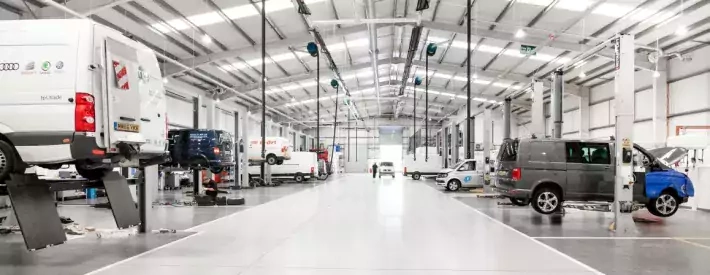Navigating complexity: the importance of vehicle identification and training

In the rapidly evolving landscape of automotive technology, the saying "you don’t know what you don’t know" has never rung truer. The complexity of modern vehicles goes beyond what was once considered common knowledge, posing challenges not only to vehicle Technicians but also to customers navigating the myriad features of their cars. The importance of accurate vehicle identification and the pressing need for comprehensive training can’t be overstated.
One of the fundamental challenges arises in identifying the fuel type a vehicle runs on. In the past, the choices were simple – petrol, diesel, or the occasional LPG. However, with the advent of electric vehicles, hybrids, and the looming presence of hydrogen, the landscape has become increasingly intricate. Mistakenly identifying the fuel type not only risks embarrassment but, more critically, could lead to potentially deadly mistakes. The urgency of this issue demands a level of knowledge and awareness that traditional training might not cover.
Similarly, the evolution of transmission systems has added another layer of complexity. Gone are the days of simple choices between manual and automatic transmissions. The introduction of double clutch gearboxes has blurred the lines, making it imperative for technicians to accurately identify the type of gearbox in a vehicle. A seemingly minor oversight can result in substantial errors, such was the case when misidentifying a double clutch gearbox led to an incorrect estimate. This not only reflects poorly on the service provider but can also have financial implications and erode customer trust.
The complexity deepens with advanced driver assistance systems. Often, manufacturers themselves struggle to compile a comprehensive list of vehicle features. The advice to refer to the owner's manual falls short when these manuals fail to provide adequate information. For instance, driving a brand-new Peugeot revealed the frustration of spending ten minutes deciphering how to select drive, a basic function that should be readily accessible. If even the manufacturers and drivers are unclear on the features a vehicle possesses, it underscores the challenge for service providers in estimating the work required, potentially leading to incomplete or inaccurate assessments.
Getting your knowledge up-to-date
To address these challenges, a critical need for training emerges, not only for Technicians but also for front-of-house staff in workshops and parts suppliers. The assumption that everyone possesses the same baseline knowledge is outdated and risky. Comprehensive training programmes should cover the intricacies of modern vehicles, from understanding different fuel types to accurately identifying transmission systems and mastering the complexities of ADAS not to mention all the other systems now in vehicles.
Technicians need to be equipped with the skills to navigate and adapt to the evolving automotive landscape. This includes staying up to date with the latest technologies, understanding the nuances of various vehicle models, and being proficient in using diagnostic tools. Similarly, front-of-house staff should be well-versed in the terminology and specifics of the vehicles serviced in their workshops. This not only enhances customer service but also ensures that accurate information is relayed between the customer and the technical team.
Parts suppliers play a pivotal role in this process. Providing accurate information to workshops relies on their understanding of the products they supply. Training programmes should encompass not only the knowledge of the parts but also an awareness of the diverse technologies present in the vehicles they support. This approach ensures that information flows seamlessly from manufacturers to suppliers and, ultimately, to service providers.
The importance of accurate vehicle identification and the corresponding training is crucial. The complexity of modern vehicles demands a level of knowledge that surpasses traditional training methodologies. From fuel types to transmission systems and ADAS features, staying informed is not only a matter of professionalism but a crucial element in ensuring the safety of drivers and the efficiency of automotive services. As the industry continues to evolve, investing in a structured and comprehensive training programs becomes not just a choice, but a necessity for all stakeholders involved.
All MOT testers must complete their annual assessment before 31st of March 2024 - book yours today.




